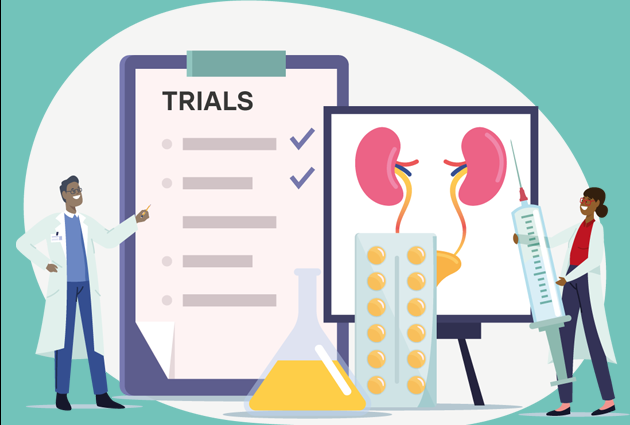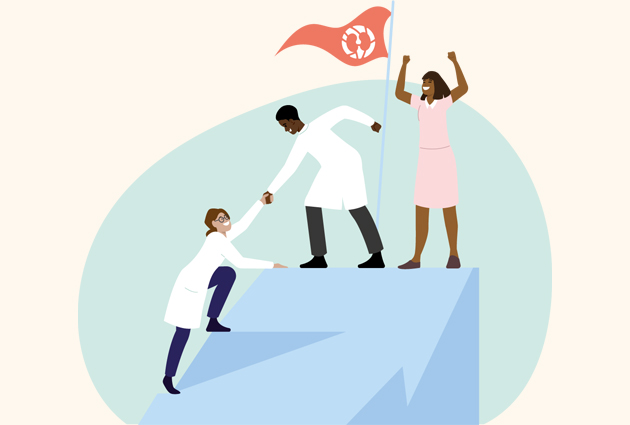“I Feel Responsible for Engaging the Next Generation of Students”- Javier Neyra on Prioritizing Capacity Building in Research
By Javier Neyra, ISN YNC member
Over the past year, I’ve had the opportunity to lead efforts by the Capacity Building Sub-committee of the ISN Young Nephrology Committee (YNC).
Young nephrologists worldwide have consistently highlighted the need to build capacity in research, particularly for those practicing in developing countries with limited scholarly resources. Therefore, one of the pillars of the YNC capacity-building vision focuses on enhancing clinical research skills and tools and expansion and inclusivity within research networks to nurture fruitful dialogue and collaboration.
In this context, we organized the YNC webinar “Understanding Basic Concepts of Clinical Research for Literature Appraisal: What Every Nephrologist Should Know,” held last October. Two hundred and twenty-four participants attended the webinar, moderated by myself and Andrea Viecelli, to hear from two outstanding speakers: Amelie Bernier-Jean and Brendan Smyth. A recording is available to watch here at the ISN Academy.
Since reading and appraising scientific journal articles are part of a nephrologist’s daily life, our expert speakers shared their tips for evaluating scientific literature. They presented a structured approach to reading a paper and assessing its strengths and weaknesses, as well as its implications for clinical practice. Dr. Smyth discussed identifying the research question using the PICO formula: P – population; I – intervention/exposure; C – comparator/control; O – outcome
He also outlined a six-step process for identifying biases in clinical trials, providing the audience with an assessment toolkit that included questions on internal and external validity, such as: Do the author’s conclusions hold up to scrutiny? Is this a valid experiment? What do these results mean for me and my patients? Do they apply to my patients? Are they of importance to my patients? What questions are not answered by this study?
Complementing Dr. Smyth’s presentation, Dr. Bernier-Jean presented basic concepts in biostatistics for nephrologists. Dr. Bernier-Jean differentiated elements of descriptive versus inferential statistics; experimental versus observational study design; epidemiologic versus predictive models; and the relevant differentiation of association versus causation. In addition, she provided concepts of hypothesis testing, type one and two errors, multiplicity of testing and the interpretation of p-values.
Finally, Dr. Bernier-Jean summarized elements of appraising statistical sections of randomized clinical trials (e.g., randomization, sub-group analyses) and cohort studies (e.g., model selection, missing data). Stratification, regression, matching, propensity scores and instrumental variables, including Mendelian randomization, were discussed as methods to
The webinar concluded with a roundtable where moderators and speakers addressed questions and comments from a global audience. Overall, it was an excellent start to a series of events on research capacity building that the YNC is planning for 2023-2024.
I am grateful to everyone involved in the planning and execution of this webinar, particularly when I look back on my early career in a developing country. In 2005, I was a medical student with little interest in or exposure to research, but my curiosity was sparked every time I heard speakers address the concept of the scientific method, namely the art of asking and answering research questions.
All these years later, my colleagues and I feel responsible for engaging and teaching the next generation of students and future nephrologists. While research methods will continue to improve, there is an ongoing need to keep curiosity alive. We may generate more questions than answers, but there is still much we can do. To quote Samuel Beckett in Waiting for Godot, “Let us do something, while we have the chance!”
Look out for more training opportunities in the field of research statistics from the YNC and the ISN Education Committee. Meanwhile, the ISN Academy has collated resources to build research skills here.












